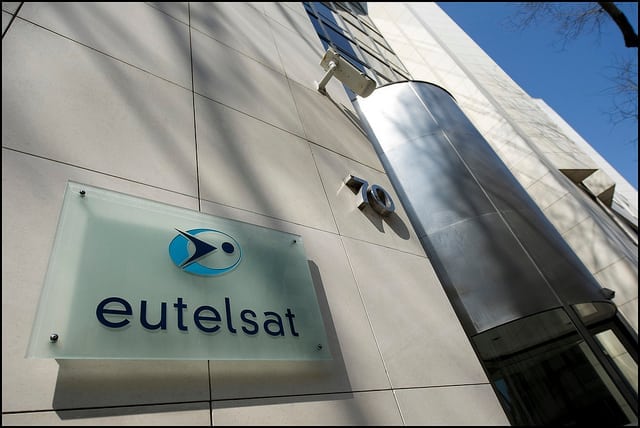Latest News

Eutelsat HQ
Eutelsat announced its latest quarterly results, which showed stability in its video business. For the three months to the end of March, the operator reported revenues of $241.7 million (215.4 million euros) in video, which represented a slight increase quarter-over-quarter. Overall revenues for the quarter reached 378.2 million (337 million euros), up 0.7 percent compared to the same stage last year.
However, fixed data and fixed broadband services struggled in the quarter. Revenues for fixed data were $34.1 million (30.4 million euros), a near 14 percent decrease to the same stage last year. Fixed broadband fared little better, reaching 19.1 million euros ($21.44 million) in the quarter, an over eight percent decrease compared to the same stage last year.
However, despite the odd sign of optimism, analysts remain concerned for the company. While Eutelsat is targeting a return to slight top line growth in FY 2019-20, Laurie Davison, a satellite equity analyst at Deutsche Bank, said in a research note that he thought this prediction was “hopelessly optimistic.” He added, “Eutelsat performed its fifth downgrade in seven quarters. This time it was a cut to the current fiscal year (FY19) which, having started the year with a target of ‘slight growth’, was downgraded to ‘broadly stable’ in October before today’s cut to -3 percent. It is worth 22.4 million (20 million euros) downgrade to company-compiled consensus EBITDA.”
Davison said this cut will be offset by the approximately $33.7 million (30 million euros) incremental from a larger-than-expected benefit from the change in tax territoriality treatment (70 million euros guidance vs consensus of approximately 40 million euros). “However, a sequential worsening in operating vertical revenues from negative 2 percent in 1H to negative 4 percent in 3Q leaves next fiscal year’s (FY20; starting July 1) target of a return to ‘slight growth’ looking hopelessly optimistic. There is more capacity coming on stream next year and new contract impact. But of concern is that Eutelsat has yet to factor in a cut in spend from Sky Italia nor Multichoice in video and is relying on a bounceback in fixed data,” Davison adds.
Davison said Deutsche Bank has cut FY19 revenues to slightly below the negative 3 percent guidance as it sees the hopes of recovery in fixed data volumes and successful implementation of price rises for the unnamed Video contract dispute as optimistic. “SEShas come clean in downgrading normalised Video revenue growth to 0 percent to negative 4 percent (their 2020E guidance for which there is no major one-offs or new capacity) and flagged pressures emerging not only in EM but also starting in the core Western European orbital positions. These pressures are coming for Eutelsat and there is no accommodation for cuts in pricing from Sky Italia nor Multichoice, their number one and number three Video clients.”
Giles Thorne, a satellite equity analyst at Jefferies, said in a research note that it has been noted that this is the third time Eutelsat’s management has lowered expectations in the past two years. “As we look across the latest drivers, we see every reason to give Eutelsat the benefit of the doubt: in Fixed Broadband, management have been clear for some time that the near term was a period for teething commercial strategies ahead of the launch of Konnect in 4Q19; in Video, we’ve learned of longer lead times around the deployment of contracted backlog. Where there should be more cause for concern (the accelerated run-off of professional video; the non-renewal of material Fixed Data volumes in Latam), Eutelsat can rightly point to well-signalled and non-core revenue streams long starved of replacement/expansion cape,” he said.
However, Thorne did note the positive video numbers. He said, “Given issues elsewhere, it’s important to note that Video as a whole is tracking to guidance and slightly ahead of consensus. Against our published view, total channel count continues to rise (postive 3 percent year-over-year) while Hotbird channels remains stable-ish (negative 8 quarter-over-quarter, negative 3.9 percent year-over-year). Indeed, Hotbird (where the secular decline debate is fiercest) saw another Q of consumed Mbps growth (positive 2 percent, from positive 4 percent year-over-year in 2Q19).”
Get the latest Via Satellite news!
Subscribe Now